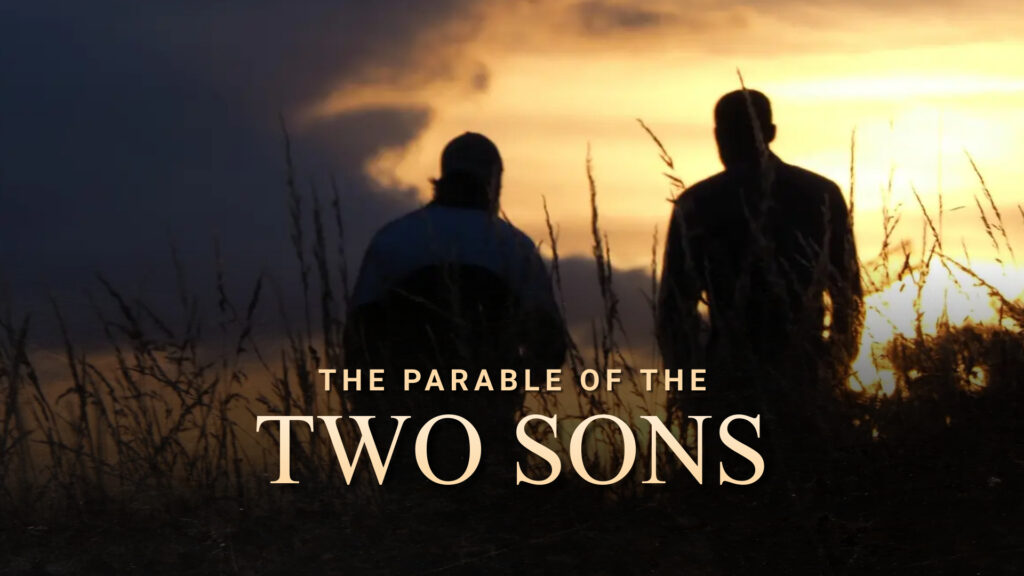A first response to the gospel portion in this Sunday’s Lectionary reading could be “why did Jesus offer an unfair trade to the Jewish[1] leaders?” The passage is Matthew 21:23-32. The ESV[2] includes two headings: “The authority of Jesus challenged” and “The parable of the two sons.”
The portion says Jewish leaders interrupted Jesus while he was teaching a crowd in the Temple.[3] They asked him one question: On whose authority was he healing and teaching? He “answered” with two questions: (1) Did the baptism of John come from heaven? (2) Or did it come from man?
They asked Jesus one question. He promised to answer if they answered two questions. Did Jesus offer the Jewish leaders an unfair trade?
The leaders knew Jesus had set a trap for them. If they answered “man,” they’d anger the crowd, who believed John was a prophet sent by God. If they answered “heaven,” they’d be admitting that Jesus’ authority was from God – and thus answering the question they’d put to Jesus.
Imagine the situation. The Jewish leaders promoted the Temple as the place for getting right with God. John Baptist didn’t operate at the Temple. He operated at the river.
He asked people to get right with God. He asked people to confess their sins and change how they lived. When people agreed, he baptized them as the “sign” that God accepted them. Thousands were baptized. They “knew” John was from God.
But the leaders couldn’t admit John was from God. Why? Because if they did, they’d be saying that Jesus, whom John recognized as “authorized,” was from God. And, they’d be saying the Temple sacrifices[4] – which made them rich – were ineffective. They were in a bind!
Jesus’ response was classic. He knew they’d set a trap for him. They knew they “had authority” because they had “appointment letters.” They knew he didn’t They wanted him to self-incriminate, to say, “I don’t have a letter.” They wanted to “negotiate” and have him out of the Temple.
Jesus knew they’d set a trap for him. He didn’t fall into it. He used the moment as a teaching opportunity. He stayed on the subject of authority. But he turned their question against them. He demonstrated how to apply the words he’d spoken to his disciples, his inner circle, earlier:
“Behold, I am sending you out as sheep in the midst of wolves, so be wise as serpents and innocent as doves.” (Matthew 10:16)
When the leaders backed off, Jesus didn’t stop. He continued. He told a parable. A farmer told his first son to go to the farm and work. He refused. Then he changed his mind. He went and worked. The farmer asked his second son to do the same. He said he would. But never did. Jesus closed by asking: “Which of the two did the will of his father?”
The answer is so obvious, everyone answered: “The first.” Jesus hammered the point home. He was polemical against the leaders. He attacked and shamed them. He drove home the lesson. Powerfully:
“Truly, I say to you, the tax collectors and the prostitutes go into the kingdom of God before you. For John came to you in the way of righteousness, and you did not believe him, but the tax collectors and the prostitutes believed him. And even when you saw it, you did not afterward change your minds and believe him.”
Tax collectors and prostitutes responded to John. They confessed their sins. They repented. They recognized who John – and Jesus – were. They accepted the voice of God in the voices of John and Jesus.
But the leaders rejected the voice of God. They didn’t “change their minds” even after they saw the changes in the people they considered the lowest of the low: tax collectors and prostitutes. They chose to remain in their comfort zones, to enjoy the patronage of the Romans who’d given them their appointment letters.
Did Jesus offer an unfair trade to the Jewish leaders? No! He offered them yet another chance to “do the will of their Father,” to be right with God.
The passage raises many questions:
Today, who are the “authorized” leaders? The tax collectors and prostitutes? The repentant?
Today, what are the equivalents of the Temple, John’s baptism, and the Romans?
Today, where are crowds gathering to be taught? Who’s competing to teach them? What are they being taught?
Today, who speaks like Jesus did at the Temple on that day? Who boldly, polemically, pounces on teachable moments, like Jesus did? (See for example, Was Jesus incredibly rude to a desperate mother?)
Today, who’s “doing the will of his father”?
[1] I use the word “Jewish” guardedly. They were the religious leaders of the day. Jesus and his inner circle were all Jews.
[2] English Standard Version translation of the Bible.
[3] We’re not told what Jesus was teaching.
[4] Earlier, in the same chapter, Matthew writes of the time Jesus chased vendors out of the Temple (Matthew 21:12-13). This was a big source of income for the leaders.
To learn more about Rama, click here.



Pingback: Why’s there a stone in “the parable of the wicked tenants”? – Bangsar Lutheran Church